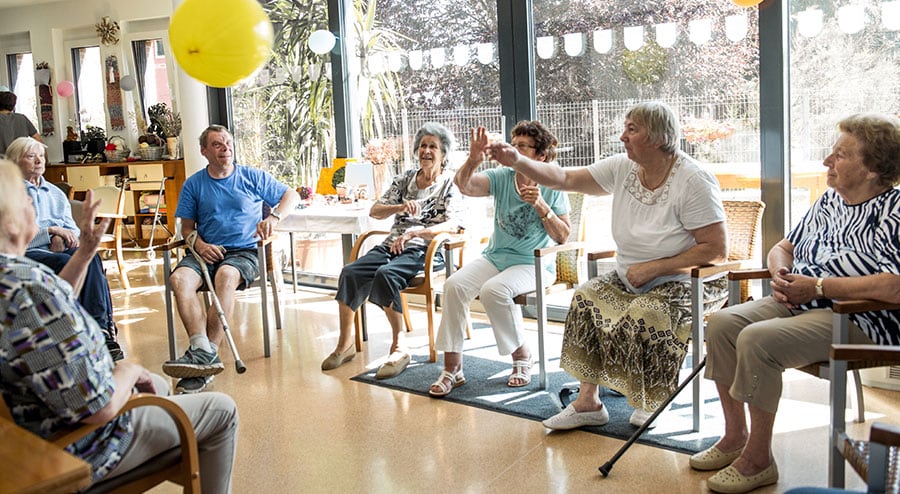Find top-rated Assisted Living communities with excellent care services.
The Relevance of a Comprehensive Program of Treatment in Assisted Living Settings
In assisted living settings, the application of a thorough program of treatment is vital for addressing the complex requirements of citizens. Such programs not only integrate clinical and mental services yet additionally foster social interaction, which is crucial for enhancing total wellness. By prioritizing individualized care strategies and including households while doing so, these programs can significantly enhance health results and high quality of life. Nonetheless, the concern remains: what specific strategies can be employed to make sure that these programs are efficiently customized to fulfill the distinct requirements of each resident?
Recognizing Comprehensive Treatment Programs
As aided living centers continue to progress, understanding detailed treatment programs becomes crucial for both citizens and their families. Comprehensive care programs are developed to address a vast array of requirements for individuals staying in assisted living environments, guaranteeing that each resident receives tailored support that shows their one-of-a-kind wellness problems and lifestyle choices.

Families play an essential duty in this process, getting involved in care preparation and recurring discussions to make certain that the resident's demands are constantly met. Recognizing these programs is important for making informed choices about treatment alternatives and making best use of the quality of life for residents in assisted living facilities.
Advantages for Homeowners

(Dementia Care Charlotte)One main advantage of detailed treatment is the enhancement in wellness results. Regular tracking and worked with clinical care aid in the early detection and monitoring of chronic problems, decreasing hospital stays and emergency situation treatments. Residents benefit from boosted social involvement, as structured activities and programs promote a sense of neighborhood, battling feelings of seclusion and solitude.
Furthermore, homeowners experience boosted peace of mind, knowing that professional support is conveniently available should they need aid. This assurance enables them to concentrate on appreciating their everyday activities and keeping significant connections.
Function of Caregivers
Caregivers play an essential role in the well-being of homeowners in assisted living facilities, ensuring that their needs are consulted with empathy and know-how. They act as the main point of get in touch with for locals, supplying important support in daily tasks such as showering, clothing, and medication administration. Their visibility not just advertises physical health however additionally boosts emotional and social wellness by fostering connections built on count on and understanding.
Along with supporting daily living jobs, caretakers are instrumental in checking modifications in citizens' wellness and behavior. They are trained to acknowledge subtle signs of distress or decline, allowing timely interventions that can avoid issues. Their understanding of each resident's one-of-a-kind history and preferences allows them to supply customized treatment, enhancing the overall quality of life.
Additionally, caretakers act as advocates for residents, communicating their needs and choices to various other health care specialists and member of the family. This advocacy is vital in developing an all natural care atmosphere that respects the self-respect and freedom of each individual. Inevitably, the devotion and skill of caretakers are crucial elements of a comprehensive program of treatment, underpinning the success of assisted living settings.
Customizing Care Plans
While every homeowner in assisted living has unique needs and choices, personalizing treatment plans is essential to delivering efficient and personalized support. A one-size-fits-all approach to care can neglect important facets of individual wellness, potentially causing suboptimal results. Memory Care. A complete analysis of each resident's health standing, individual history, and lifestyle selections is critical in establishing tailored treatment strategies.
The customization procedure includes cooperation among medical care experts, caretakers, and relative. By integrating input from all stakeholders, care plans can resolve not only clinical demands but also emotional and social elements that add to total lifestyle. Normal evaluations and updates to these plans ensure that they continue to be pertinent as locals' conditions and preferences develop over time.
(Dementia Care Charlotte)Furthermore, personalized care strategies promote a sense of dignity and autonomy among locals, promoting an environment where they really feel valued and respected. This customized strategy not only enhances the performance of care but also enhances the relationship in between caregivers and residents, developing a supportive community environment. Eventually, investing in customized treatment planning is a cornerstone of providing top quality assisted living solutions that satisfy the diverse requirements of homeowners.
Enhancing Neighborhood Interaction
Structure on the foundation of tailored care strategies, boosting neighborhood interaction is an important facet of improving the total experience for citizens in assisted living (Assisted Living). Energetic participation in neighborhood tasks cultivates social links, fights sensations of seclusion, and adds to psychological health. Helping with opportunities for homeowners to involve in team tasks, such as art classes, gardening, and exercise sessions, develops a comprehensive environment that advertises communication and cooperation
Moreover, integrating locals right into the broader area via partnerships with neighborhood companies can give enriching experiences, such as volunteering and attending social events. This not only helps locals really feel valued however also reinforces ties with the bordering area, improving their sense of belonging.
In addition, encouraging household participation in neighborhood tasks is crucial. Memory Care. Relative can act as vital support group, assisting to bridge the space in between residents and the community. Regular family members occasions and open forums for discussion foster openness and partnership, making sure that the care atmosphere stays responsive to the requirements of all stakeholders
Verdict
To conclude, thorough care programs in assisted living setups her response play an important role in enhancing locals' wellness. By attending to clinical, emotional, and social demands, these programs not only improve high quality of life yet additionally advertise early detection of health and wellness issues, reducing the likelihood of hospitalizations. Moreover, the participation of family members in treatment preparation reinforces support networks, promoting a dignified and independent living atmosphere. Eventually, such programs contribute considerably to the overall wellness end results and fulfillment of citizens.